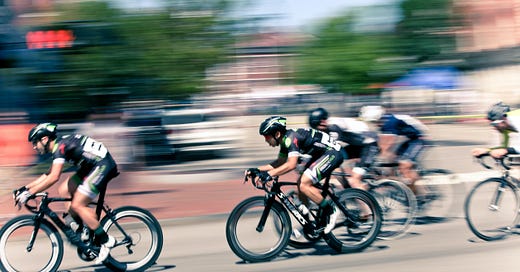Mindset revisited
Can mindset concepts be applied to groups and organizations? Although we typically think of it as an individual trait, a group mindset may be the key to successful team cultures.
Mindset theory states that belief about our abilities can shape our behavior. If we believe our capacity to learn or perform is open-ended we’re exhibiting what Carol Dweck and others call a growth mindset. Mindset research has been underway since the 1980s but it wasn’t until Dweck’s 2006 bestseller, Mindset: The New Psychology of Success, that the idea caught the imagination of sport practitioners around the world.
The article below describes how the learning environment can be manipulated in ways that expand youngsters beliefs about their capacity to learn and perform. But what would happen if this could be done for groups and teams? Could mindset be the key to creating effective team cultures?
Team culture gets talked about a lot, but:
Team culture is a term that gets a lot of use in sport circles without benefit of a definition. Like mental toughness or athleticism it's a convenient catch-all phrase that pops up occasionally, sounds useful, but lacks specific meaning. (Can team culture affect high performance?)
Lacking an operational definition preempts definitive strategies for recognizing, building, or changing team cultures; often they just happen. But imagine a team whose athletes exhibit a growth mindset. What could a team like this accomplish? What kind of synergy could be created? What would the culture of a team like this look like?
Best of all we know how to develop a growth mindset, so mindset-as-culture provides a clear pathway to achievement.
This article was originally published in July 2015
The power of “Not yet”
All sport coaches should learn to teach the basics of their sport to youngsters. I coached swimming for over 30 years at highly competitive levels in the United States. But I also taught swimming to beginners, usually young children. Teaching at the beginner level helped me to understand the power of mindset and how a growth mindset allows a learner to overcome challenges and be successful. I'm convinced people can learn anything they really want to and at the very center of this ability you will find a growth mindset.
Swimming teachers probably hear "I can't" more than any other teacher on Earth. "I can't go underwater." "I can't blow bubbles." "I can't jump into the pool." The litany of negative self-evaluations is long. But I remember once when I asked a 5-year-old if she could blow bubbles. She replied, "Not yet." It may not have been the first time I heard it but it was the first time I really thought about the answer and how it made that child different from others who simply said they couldn't do it.
The "not yet" answer implies a growth mindset. A student or an athlete who says they can't do something yet is saying they are going to keep working at it until they can. This is the outlook needed for success in competitive sport and one coaches and teachers have an opportunity to shape at the earliest levels.
How can we help children form this mindset? One way is useful both in the classroom and on the playing field.
Carol Dweck, a Stanford psychologist and author of Mindset, studies how mindset affects learning and performance. One of the interesting things she's found is that children praised for their effort tend to persist at a challenge longer and are more willing to accept new challenges.
Praising effort rather than ability was key to developing the growth mindset. When praised for effort ("You really tried hard on that.") children were more likely to persist at a task until they accomplished it. Children praised for their ability or intelligence ("Oh, you're so smart!") had to protect this evaluation and thus were reluctant to accept further challenges for fear they would fail and thereby change the teachers opinion of them.
By praising effort we are reinforcing behavior we know will aid in developing whatever we are trying to teach. A child praised for the quality or level of their effort will feel the need to continue behaving in this way. In other words, they will continue behaving in ways that will help them improve or learn, and they will look for opportunities to do this.
Now think about what the effect is when we praise children for their ability or intelligence. The child feels the same need to maintain our positive evaluation. But it is unlikely they will seek new challenges. If they fail at something new our evaluation of their ability may change, thus they avoid new challenges. Both ability and intelligence are seen as 'fixed' commodities and trying to learn new things or accepting challenges may reveal the child's' ability or intelligence is not really as good as we thought.
Take-away: When we praise effort we encourage a growth mindset. When we praise ability, we don’t.
This has a huge impact on sport development programs. Ill-conceived talent identification programs reinforce a closed mindset and do nothing to raise the level of sport performance in a country.
But be honest!
While praising effort is the best strategy, honest praise about effort is critical. Not everyone works equally hard so it's important our praise be based on actual effort. Simply saying "nice job" or "good effort" is meaningless unless it is based in fact.
Be careful to separate effort from result though. Sometimes no matter how much effort a student or athlete expends on a task the result will not be what we want. But that's OK. Remember, it's the effort to keep trying that will eventually get them there. And if you ever do hear an athlete or student report that they can't do something yet, remember it, because they are saying they are right on track!




